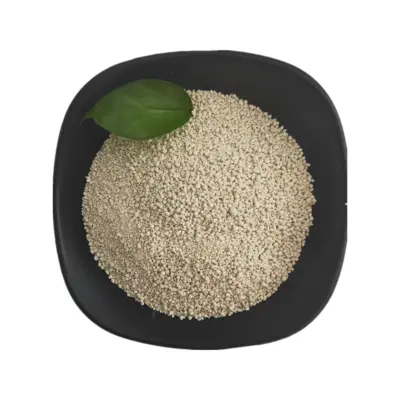Magnesium sulphate monohydrate fertilizer grade, also known as magnesium sulfate, is an important nutrient for plant growth and development. It is a form of magnesium that is easily absorbed by plants, making it an important component of fertilizers used to maximize crop yields. In this article, we will explore the benefits of using Magnesium sulphate monohydrate fertilizer grade and how it can help achieve higher crop yields.
Magnesium is an essential element for plant growth and plays a vital role in photosynthesis, activation of enzymes, and synthesis of nucleic acids and proteins. It is also a key component of chlorophyll, which gives plants their green color and is essential for the photosynthesis process. Therefore, ensuring an adequate supply of magnesium is critical to promoting healthy plant growth and maximizing crop yields.
Magnesium sulphate monohydrate fertilizer grade provides a ready source of magnesium and sulfur, both essential nutrients for plant growth. Magnesium sulfate is highly soluble in water and can be quickly absorbed by plants, making it ideal for resolving magnesium deficiencies in crops. By incorporating Magnesium sulphate monohydrate fertilizer grade into the soil, farmers can ensure their crops receive the nutrients they need for optimal growth and development.
One of the main benefits of using Magnesium sulphate monohydrate fertilizer grade is its ability to improve the overall quality of your crops. Magnesium plays a vital role in enhancing the flavor, color and nutritional value of fruits, vegetables and other crops. By providing plants with an adequate supply of magnesium, farmers can increase the marketability and consumer appeal of their products, ultimately leading to higher profits.
In addition to improving crop quality, fertilizer grade Magnesium sulphate monohydrate also plays a vital role in increasing crop yields. Magnesium is involved in the photosynthesis process, which is essential for converting light energy into chemical energy and ultimately promoting plant growth. By ensuring plants get enough magnesium, farmers can promote healthy, vigorous growth, thereby increasing yields at harvest.
Additionally, magnesium sulfate can help mitigate the effects of certain soil conditions that may hinder plant growth. For example, a magnesium deficiency can lead to soil compaction, poor water penetration, and reduced nutrient uptake by plants. By solving these problems with magnesium sulfate monohydrate fertilizer grades, farmers can improve soil structure and fertility, create a more favorable environment for plant growth and maximize crop yields.
In summary, Magnesium Sulfate Monohydrate fertilizer grade is a valuable tool for farmers looking to maximize crop yields and improve the overall quality of their products. By providing plants with an easily accessible source of magnesium and sulfur, this fertilizer grade addresses nutrient deficiencies, promotes healthy growth, and ultimately increases yields at harvest. Magnesium sulfate monohydrate fertilizer grade has many benefits for plant health and productivity and is an important part of modern agricultural practices.
Post time: May-15-2024

